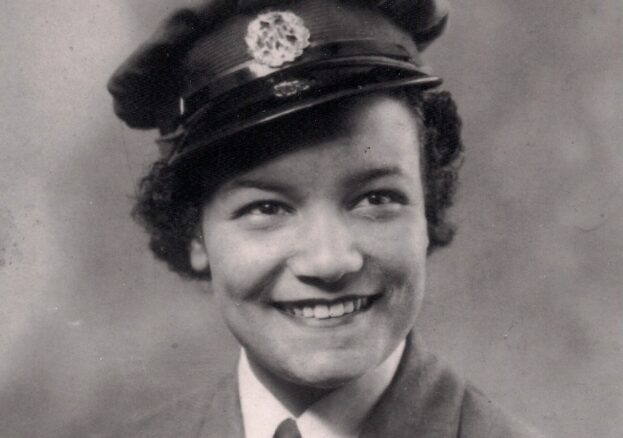
Lilian Bader was a trailblazing woman who made history as one of the first black women to join the British Armed Forces. She was born on February 18, 1918, in Liverpool, England, to a British mother and a Nigerian father.
Bader’s childhood was marked by tragedy, as her mother died when she was just nine years old. She and her two brothers were placed in the care of an orphanage, where she remained until the age of 20.
In 1941, Bader joined the Women’s Auxiliary Air Force (WAAF), becoming one of the first black women to do so. Despite facing discrimination and prejudice from some of her white colleagues, Bader excelled in her training and was eventually promoted to leading aircraftwoman.
During her time in the WAAF, Bader met her husband, Ramsay Bader, a fellow serviceman. The couple married in 1943 and had one son, who sadly passed away at a young age.
After the war, Bader left the WAAF and trained as a teacher, eventually becoming a headmistress.
In 2003, Bader was awarded an MBE (Member of the Most Excellent Order of the British Empire) in recognition of her pioneering role in the Armed Forces and her contributions to education.
In later life, she became involved in various community organisations and was awarded an MBE (Member of the Order of the British Empire) in 2003 for her services to education and the community.
Lilian Bader passed away on March 13, 2015, at the age of 97. She will be remembered as a courageous and inspirational woman who broke down barriers and paved the way for future generation
As the nation’s largest Armed Forces charity, the Royal British Legion (RBL) is dedicated to ensuring that all those who served and sacrificed, and who continue to do so, in defence of our freedoms and way of life, from both Britain and the Commonwealth, are remembered.
In our acts of Remembrance, the RBL remembers,
- The sacrifice of the Armed Forces community from Britain and the Commonwealth.
- Pays tribute to the special contribution of families and of the emergency services.
- Acknowledges the innocent civilians who have lost their lives in conflict and acts of terrorism.
The story of Black British and Black African and Caribbean service and sacrifice is one that we are keen to share, a story of men and women who have done so much in defence of Britain and in protecting all our citizens. A story that is replete with stories of bravery and courage, as epitomised by Victoria Cross winner Johnson Beharry.
 Therefore, to mark 100 years since Britain’s current Remembrance traditions first came together, the RBL has bought together over 100 stories of British and Commonwealth African and Caribbean service and sacrifice. The stories range from the First World War to the present day and are of servicemen and women from across Britain, Africa and the Caribbean, representing both the armed forces and emergency services.
Therefore, to mark 100 years since Britain’s current Remembrance traditions first came together, the RBL has bought together over 100 stories of British and Commonwealth African and Caribbean service and sacrifice. The stories range from the First World War to the present day and are of servicemen and women from across Britain, Africa and the Caribbean, representing both the armed forces and emergency services.
The RBL wishes to offer special thanks to Stephen Bourne for his help in putting these stories together. Stephen Bourne has been writing Black British history books for thirty years. For Aunt Esther’s Story (1991) he received the Raymond Williams Prize for Community Publishing. His best-known books are Black Poppies (2019) and Under Fire (2020). His latest book Deep Are the Roots – Trailblazers Who Changed Black British Theatre was recently published by The History Press. For further information about Stephen and his books, go to his website www.stephenbourne.co.uk
